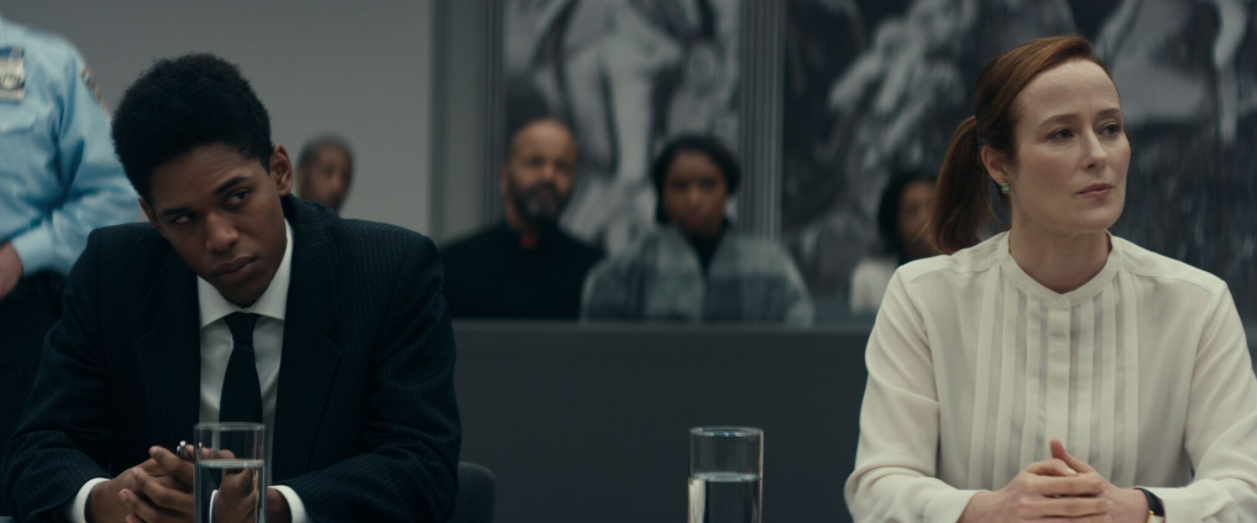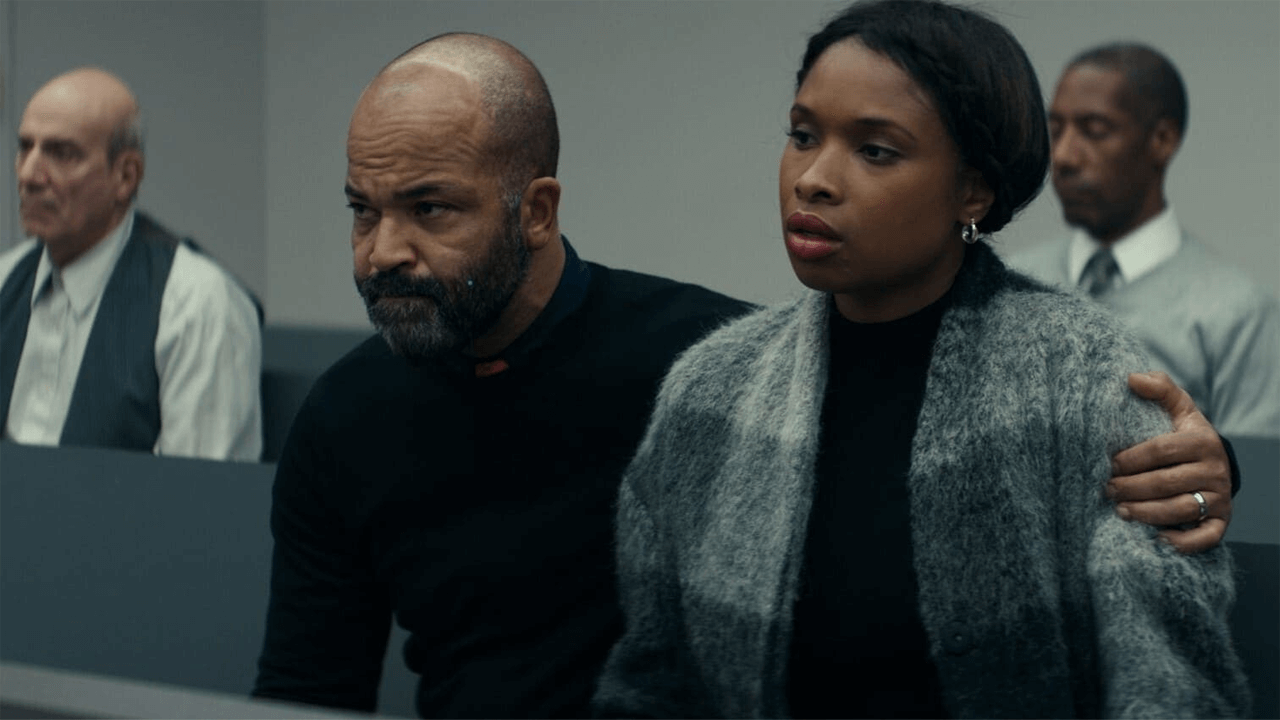Predominantly set in New York City, ‘Monster’ is a courtroom drama film that explores how social perception can negatively impact the legal system. The story revolves around Steve Harmon (Kelvin Harrison Jr.), a bright and brilliant honor student who aspires to become a filmmaker someday. He can often be found with an analog camera or his phone in hand, taking pictures of or filming the vibrant urban beauty of his Harlem neighborhood and elsewhere in New York. His parents (Jennifer Hudson and Jeffrey Wright) are kind, loving, and actively involved in his life. By all indications, Steve doesn’t sound like someone who will be involved in a crime.
And yet, he is accused of being a part of a bodega armed robbery that resulted in the death of a person. The prosecutor (Paul Ben-Victor) first tells Steve’s defense lawyer, Katherine O’Brien (Jennifer Ehle), that he (Steve) fits the profile of the perpetrator. During the trial, he points at Steve and declares him to be a “monster.” If the film’s unflinching portrayal of the imperfect and prejudicial legal system has made you wonder whether it is based on real-life events, this is what you need to know.
Is Monster Based on a True Story?
No, ‘Monster’ is not based on a true story. Directed by Anthony Mandler, it’s the cinematic adaptation of the namesake young-adult novel by Walter Dean Myers. While turning Myers’ book into a screenplay, scriptwriters Janece Shaffer and Colen C. Wiley brought several changes to the story, especially towards the ending. For instance, in the book, Steve goes to hug O’Brien after his verdict is read out, but she turns away from him.

This makes Steve question whether O’Brien believes in his innocence. In the film, they shake hands and part amicably. Her views on his innocence are not particularly enunciated. However, Myers infused the book with certain autobiographical elements, and they have found their way to the film. When he was younger, the author dealt with a severe speech impediment. His classmates made fun of him because of this, leading him to react violently against them.
He received disciplinary beatings from his teachers, and sometimes his actions drew the attention of even the police. He reportedly received the moniker “monster” due to such behavior. In the film, the prosecutor claims that Steve and the other three accused are “monsters” because of the murder they allegedly committed.
Influenced by the advice of his high school teacher, Myers began writing in the nighttime after he was done with his work at construction sites. In the same way, in the film, Steve envisions his life as a movie, of which he is the writer, director, and main star. While the film is not developed from actual events, it earnestly depicts several real socio-political issues of modern America. When Steve is arrested on felony murder charges, the legal system starts seeing him solely through his racial identity. US law states that no one is guilty until a court convicts them. And yet, Steve is presumed guilty almost by default and has to fight an uphill battle to prove his innocence.
His record, upbringing, and the school he attends become immaterial because he apparently fits certain racist preconceptions. The US has a larger inmate population than any other country in the world, with members of the black community making up a disproportionate percentage of it. It won’t be wrong to conclude that some of these people are in a similar situation as Steve in the film. Despite their innocence, they may be spending years in jail because the system has failed them.
In many ways, Steve is ultimately lucky. He is fictional, the protagonist of his own story, and has a thing called plot armor. He ultimately manages to become the exception to a rule and get out of prison before he is forced to spend his youth there. In real life, most people in a similar situation are not that lucky. Clearly, ‘Monster’ is not based on a true story, but it’s completely understandable that one might think otherwise.
Read More: Where Was Monster Filmed?


You must be logged in to post a comment.